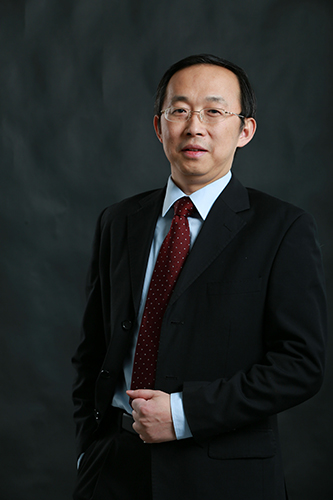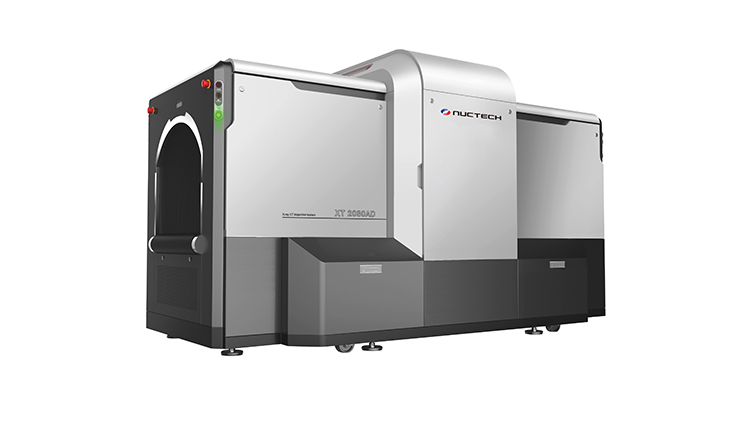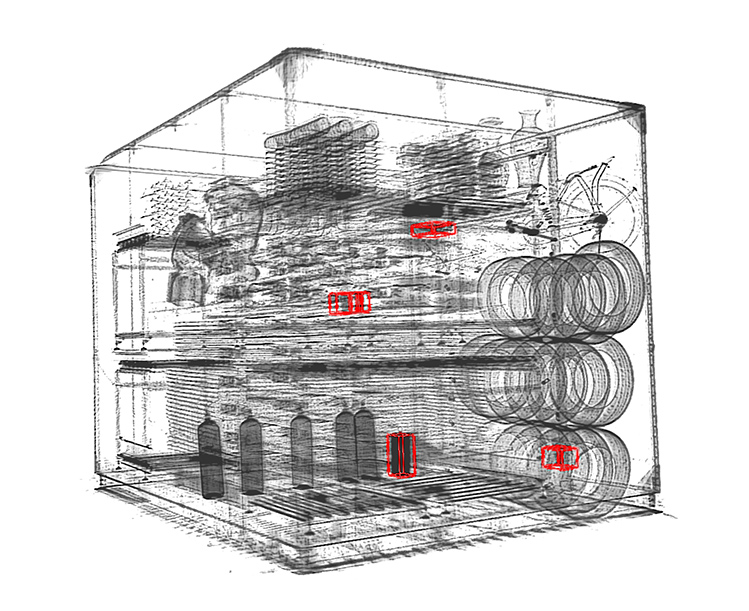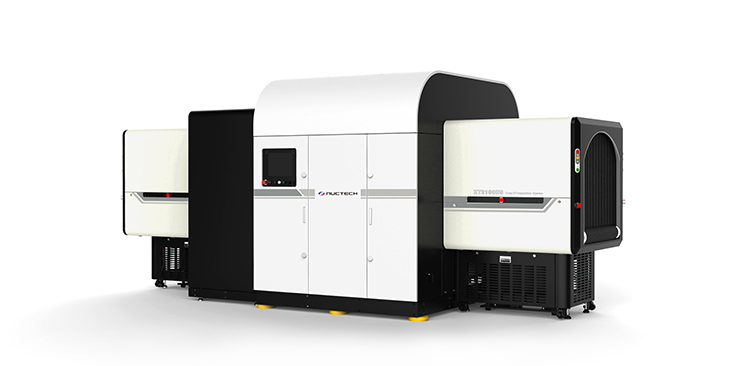An interview with Prof. Zhiqiang Chen from Tsinghua University, Chairman, President and Chief Executive Officer, NUCTECH. By Ross Falconer
During the unprecedented COVID-19 pandemic, an increasing spotlight has been placed on air cargo transportation due to its role in delivering critical shipments like vaccines or life-saving medical supplies. Booming e-commerce is also bolstering the air cargo sector, meaning it has remained relatively robust during the pandemic.

Prof. Zhiqiang Chen from Tsinghua University, Chairman, President and Chief Executive Officer, NUCTECH
“According to IATA, despite the significant passenger traffic fall of 66% in 2020, the impact of COVID-19 on air freight is less dramatic, with a moderate reduction of 11.5%,” explains Prof. Zhiqiang Chen from Tsinghua University, Chairman, President and Chief Executive Officer, NUCTECH. “It is expected that air freight will become a vital revenue stream to offset lost passenger traffic in the post-pandemic world.”
Security is, of course, a priority. By 30 June 2021, ICAO requires all Member States to enhance their security protocol. 100% of international air cargo transported on commercial aircraft needs to be either screened for concealed explosive devices or be subject to appropriate security controls throughout the supply chain.
“The aviation community now faces enhanced security requirements on the one hand, while craving increasing speed on the other,” says Prof. Chen. “As critical cargo such as vaccine transportation needs to race against time, how to strike a balance between security and efficiency has become a pressing issue for the air transport community.”
In addition, air cargo security operation always entails a great deal of manual work in terms of moving and unpacking, which can be dangerous for frontline workers potentially exposed to virus infection. “Especially when it comes to high-risk cold chain cargo, the challenge to stop possible viral transmission and the need for health protection are paramount to business continuity amid the COVID-19 pandemic,” Prof. Chen comments.
Tech evolution for speedier screening

Aside from the traditional X-ray scanners, new technologies like Computed Tomography (CT) have been introduced to cargo operations. CT scanners specialise in improving detection capabilities by providing 3D images with rich volumetric information of the package contents.
Air cargo comes in various sizes, shapes, materials and packages, posing challenges for efficient screening. NUCTECH has a full range of screening solutions available for air cargo security operations, with various options for different scenarios.
Aside from the traditional X-ray scanners, new technologies like Computed Tomography (CT) have been introduced to cargo operations. “CT scanners specialise in improving detection capabilities by providing 3D images with rich volumetric information of the package contents,” Prof. Chen explains. “With 360-degree perspectives in sight, overlapping can be properly addressed and concealed dangerous items can be easily detected.”
For break bulk cargo, packages could be scanned with the ECAC-approved NUCTECH XT Series to identify a wide range of prohibited and dangerous goods, including explosives, illegal drugs, weapons and lithium batteries. “When integrated with cargo facilities, the scanners can be operated in an inline mode, ensuring a high throughput of 1,800 items per hour, making sure safe parcels go through seamlessly, especially during peak times,” says Prof. Chen.
For consolidated cargo mounted on pallets or unit load devices (ULDs), CTitan, a large bulk air cargo CT scanner, provides operators with clear 2D, 3D and CT slice images, with suspicious objects automatically marked. “By cutting manual packing and unpacking to the minimum, CTitan is suitable for hub airports or large cargo centres to quickly screen Q7 or W2 ULDs or large palletized cargo without the need for screening piece-by-piece,” Prof. Chen explains. “With a triple throughput, this solution is set to take air cargo screening to a new speedier future.”
Scanners aside, centralised management is also on the rise to optimise system operations and human resource allocation. With a patented smart management system in place, the solution combines all screening equipment together and integrates the rich data collected from each component to assist operators in real time, including cargo information, scanned images, operational data, system status, etc. “It enables centralised image processing (CIP), in which images can be automatically sent to the next available screener despite their physical location, allowing for optimised and flexible resource management and reduced operational costs,” Prof. Chen adds.

For consolidated cargo mounted on pallets or unit load devices (ULDs), CTitan, a large bulk air cargo CT scanner, provides operators with clear 2D, 3D and CT slice images, with suspicious objects automatically marked.
Artificial Intelligence for smarter screening
Diversity is intrinsic to air cargo. From critical medical supplies, food and wines, to fresh produce, various high-value and time-sensitive goods can be found packed into pallets and containers. “Because of this, screening images are usually hard to interpret and inevitably lead to high false alarm rates, further causing time-consuming re-checks and operational delays,” says Prof. Chen.
With NUCTECH’s air cargo security solution, Artificial Intelligence (AI)-based automatic detection algorithms have been integrated to enable automatic detection of an ever-expanding list of prohibited or dangerous items. “With their quick speed, AI algorithms can greatly help operators, especially the less experienced staff, to speed-up and improve their image analysis performance,” Prof. Chen comments. “Free from fatigue or distraction, AI can also help maintain the consistency of decision-making, even when the workforce is highly volatile in the time of COVID-19.”
Additionally, AI is a fast learner. By feeding more images into its ‘brain’, it quickly evolves to be more skilful at detecting suspicious items with steady performance.
“AI algorithms enhance detection capabilities on account of evolving threats, reducing false alarm rates, which drastically accelerates the flow of goods through security checks,” says Prof. Chen. “With the help of automatic detection algorithms, most cargo can be cleared and released quickly. Security staff can now concentrate only on those that trigger alarms.”
WEKNOW, a proprietary NUCTECH AI platform, integrates deep learning algorithms and intelligent image analysis into X-ray systems. Reducing subjective human interpretation and leveraging an expandable detection library, WEKNOW increases throughput while minimising manual inspections and false alarm rates.
“Aside from improving detection, AI can also be utilised to optimise system operations and minimise system downtime,” says Prof. Chen. “As any system failure can cause disruptions to the time-sensitive air cargo flow, it is imperative that system data can be collected and analysed by AI algorithms in a timely manner to automatically monitor system performance and arrange proper maintenance schedules.”

For break bulk cargo, packages could be scanned using the ECAC-approved NUCTECH XT Series to identify a wide range of prohibited and dangerous goods, including explosives, illegal drugs, weapons and lithium batteries.
Disinfection solution for healthier screening
The COVID-19 pandemic shows that viruses know no bounds. Prof. Chen notes that it has highlighted the vulnerability of air cargo flow by making cold chain food one of the possible vectors for virus transmission. “Sporadic cases have highlighted the necessity to introduce disinfection solutions to stop any possible virus from spreading along the supply chain. However, traditional methods of manual disinfection require intensive labour, special training and rigorous time schedules, further straining the already limited workforce.”
In light of this, NUCTECH developed the ASD3000 Disinfection System to expedite and automate the disinfection process. It adopts double-cyclone spray technology to achieve thorough disinfection of cold chain commodities and other goods. Its modular design ensures compatibility with wide varieties of conveyor and easy relocation and installation to different operational sites. Prof. Chen adds that, engineered with different operational modes to expand disinfection capabilities, the NUCTECH ASD3000 helps facilitate the safe movement of materials and goods with minimal impact on the cargo flow. “With a growing air cargo market on the horizon, increasing efforts shall be made towards package and cargo screening. It is high time to put the enabling technologies in place to bolster a safe, secure and speedy air freight industry in the post-COVID world.”
About NUCTECH
NUCTECH was founded in 1997 by a group of physicists as a spinoff company from Tsinghua University. With a workforce including PhD-educated staff and field-leading scientists, engineers, and software developers, the company has transformed theory into a range of advanced products, with an emphasis on research and development.
Innovation is at the core of the growth of NUCTECH. Owing to relentless R&D efforts, NUCTECH strives to stay at the forefront of the market by hosting an extensive product portfolio ranging from scanners to detect illicit, dangerous or contraband items, to the newly-developed anti-pandemic disinfection or quarantine solutions. Core products have been approved by regulatory agencies, including the Civil Aviation Administration of China (CAAC), the UK Department for Transport (DfT) and the European Civil Aviation Conference (ECAC).
With a prominent position in the security market, NUCTECH achieves a significant market penetration in more than 170 countries, with an extensive service network established to further support its global clients to safeguard travel, trade and transport across the globe.
About Prof. Zhiqiang Chen
Prof. Zhiqiang Chen, Chairman, President and Chief Executive Officer of NUCTECH, is a prestigious professor and doctoral supervisor of Tsinghua University. As a highly recognised scholar, he also chairs the Nuclear Technology Research Institute and the National Engineering Laboratory for Dangerous Articles and Explosives Detection Technologies, while serving as Executive Director of the Chinese Society of Stereology and the China Isotope & Radiation Association.
Prof. Chen has been active in the research of detection technologies for over 20 years. As the Chief Technical Officer, he successfully supervised key R&D breakthroughs in the commercialisation of screening technologies. He also chaired several national key science and technology research initiatives and has been widely recognised with high-profile honours, including the first Prize of the National Science and Technology Progress Award, and the WIPO (World Intellectual Property Organization)-SIPO (State Intellectual Property Office of the PRC) Award for Chinese Outstanding Patented Invention & Industrial Design.







